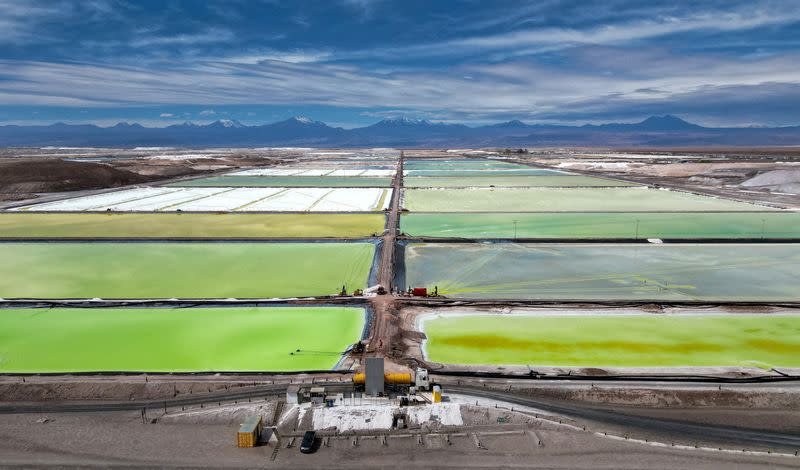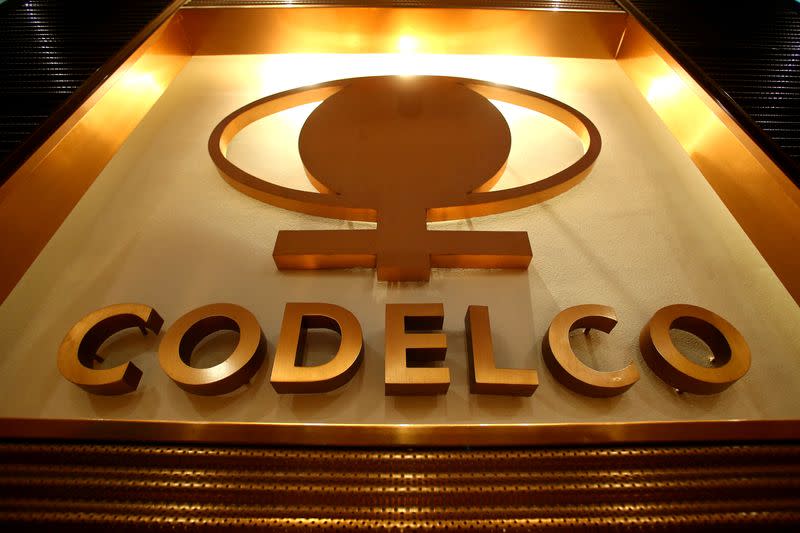Codelco and SQM ink pact set to reshape Chile's lithium sector
By Daina Beth Solomon and Fabian Cambero
SANTIAGO (Reuters) -Chilean state miner Codelco and the world's No. 2 lithium producer SQM struck a pivotal deal on Friday over a joint venture that will reshape the Andean country's lithium sector and give the state a front-line role in developing the key electric vehicle battery metal.
The new entity will let SQM boost output through 2060 in the Salar de Atacama, one of the world's most prized areas for extracting lithium.
Majority control, though, will go to Codelco, marking the copper giant's first lithium venture as it takes on a state mandate to spearhead the government's entry into the industry. Several hurdles remain to finalize the partnership.
"Just as we have contributed to making Chile the world leader in copper production, we will now contribute to making our country a leader in the production of lithium, another mineral critical to the energy transition," Codelco Chairman Maximo Pacheco said in a statement.
Chile is the world's second largest producer of lithium after Australia, thanks to output from SQM and Albemarle.
The global shift toward EVs has created a rush by automakers and others for more supplies of the ultralight metal. Boric and others in the government frame their lithium strategy as intrinsically linked to the global fight against climate change.
The deal follows months of complex negotiations between the two companies, as well as protests by Indigenous communities and challenges from a major SQM shareholder.
SQM shares initially rose on the announcement, before dropping 0.2%.
Analyst Cesar Perez-Novoa of BTG Pactual said the news cleared away the uncertainty of the talks.
"We expect positive share reaction for the stock as negotiations, along with lithium prices, have been an overhang over share performance," he said.
The planned 2025 start of the partnership will depend on Chile's financial regulator rejecting a request from China's Tianqi Lithium, which holds about 20% of SQM's shares, for shareholders to vote on the joint venture.
SQM maintains only a board vote is needed.
Goldman Sachs warned on Friday that investors should focus on whether Tianqi will seek legal action to block the partnership agreement, which it said is "not a stellar deal" as SQM is set to become a minority shareholder of a state-owned enterprise.
Tianqi did not immediately respond to a request for comment.
The deal also requires approvals from Chilean and foreign authorities and a consultation with local Indigenous communities in the Atacama salt flat.
"The projects we are going to develop with Codelco will be extraordinarily positive," SQM CEO Ricardo Ramos said in a statement, noting that 85% of the operating margin will go to public coffers as of 2031.
The deal, first outlined in December, calls for Codelco to oversee general management as of 2031, and says board members cannot have already served more than a decade on the board of either company.
The agreement also allows SQM to lift production by 300,000 metric tons of lithium carbon equivalent (LCE) through 2030, while aiming for annual output of 280,000-300,000 tons through 2060.
The companies said in a joint statement the increase will derive from new technologies and improved operations, without extracting a higher amount of brine or depending more heavily on bodies of water.
(Reporting by Daina Beth Solomon, Natalia Ramos, Fabian Cambero, Editing by Alex Villegas, Sriraj Kalluvila, Ernest Scheyder and Richard Chang)

 Yahoo Finance
Yahoo Finance 

